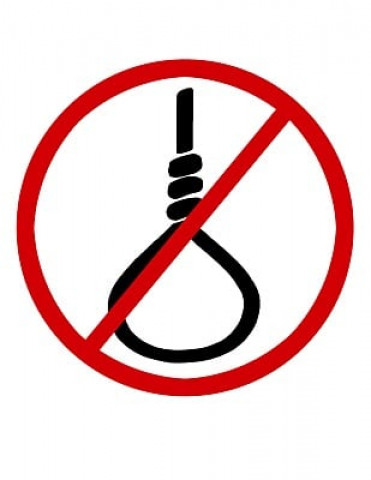Kot Lakhpat jail: The hangman
For Sabir Masih, death only mattered the first time.

Sabir Masih was nervous the first time. After executing more than 200 people, it’s become easy to pull the latch.
His earliest memories are of accompanying his father to the gallows. A Christian by faith, Sabir says being a hangman has been his family occupation since the British rule in the subcontinent. “My grandfather’s brother was Tara Masih, the famous executioner of Bhutto,” he boasts.
The 27-year-old hangman at Kot Lakhpat Jail in Lahore has been in this “deathly” profession for five years. “I was a little nervous to put the noose around the first time and to pull the latch. But the jail superintendent supported me,” Sabir says in a voice that lacks compassion.
The young hangman believes people on death row deserve capital punishment if they have killed someone. “I believe in the Bible and it teaches us, just like the Quran, that it is an eye for an eye. People convicted for murder do not deserve to live, unless the aggrieved party pardons them,” Sabir says, adding that it is not for him to judge the people he hangs. “I just follow orders.”
He is paid Rs10,000 a month and Rs20 per hanging, which Sabir does not collect at times since the amount is so nominal. Sabir says the most peculiar hanging in his career was of two brothers in Sahiwal, who came singing to the gallows. “When the magistrate asked them to ask for forgiveness from the victim’s family, (which is usually present at the time of execution), the brothers started to hum a song and laughingly responded saying they were rightly accused so they deserved to be hanged,” he says. “Some people cry. Most people just pray.”
Some prisoners, realising that he is Christian, ask the jail superintendent to get a Muslim to execute them. “But such demands are rarely met since the convict’s face is covered and he usually does not know who pulls the latch.”
Sabir hanged more than 200 people during the first three years of his career from 2006 to 2008. His cousin, also a hangman, has travelled all over Punjab for executions since there is a shortage of people in the profession. “I did my first century relatively quickly because during Pervez Musharraf’s era there were many executions. Once I hanged five people in a day at the District Jail in Faisalabad,” he says.
“We have to be really careful with the length of the rope and its grip around the neck. We cannot afford to make any mistakes so we weigh the inmate a day before his execution and decide on the length of the rope,” Sabir explains. “There have been cases where the neck is pulled too much and it tears from the torso.”
In 2007, the United Nations adopted a resolution for a moratorium on the use of death penalty. The resolution was adopted by 104 UN member states, while the United States and most South Asian countries, including Pakistan, India, Bangladesh and Afghanistan were among 54 countries that voted against the resolution.
According to the Human Rights Commission of Pakistan, Pakistan has one of the highest rates of capital punishment in the world, with 27 offences that are punishable by death – also one of the highest globally.
(Read: ‘My 17 death sentences’ by Jaleel Morejo)
According to independent reports, around 7,000 prisoners are on death row in Pakistan, even though there has been a stay order by the president on all hangings in the country since November 2008.
Earlier the same year, Prime Minister Yousaf Raza Gilani approved a cabinet decision to change all death sentences to life imprisonment. However, this could not materialise because a suo motu notice was taken by the then chief justice of Pakistan, Justice Abdul Hameed Dogar. To avoid a confrontation with the judiciary, the Ministry of Law then tried to bring amendments through parliament, but there has been little development there too because of pressure from different political and public circles in favour of the death penalty.
With no executions in more than two years, Sabir feels useless going to work now. “I am looking for a new job, since as long as President Zardari is in power, he will not allow any hangings,” he says.
Published in The Express Tribune, August 3rd, 2011.



















COMMENTS
Comments are moderated and generally will be posted if they are on-topic and not abusive.
For more information, please see our Comments FAQ